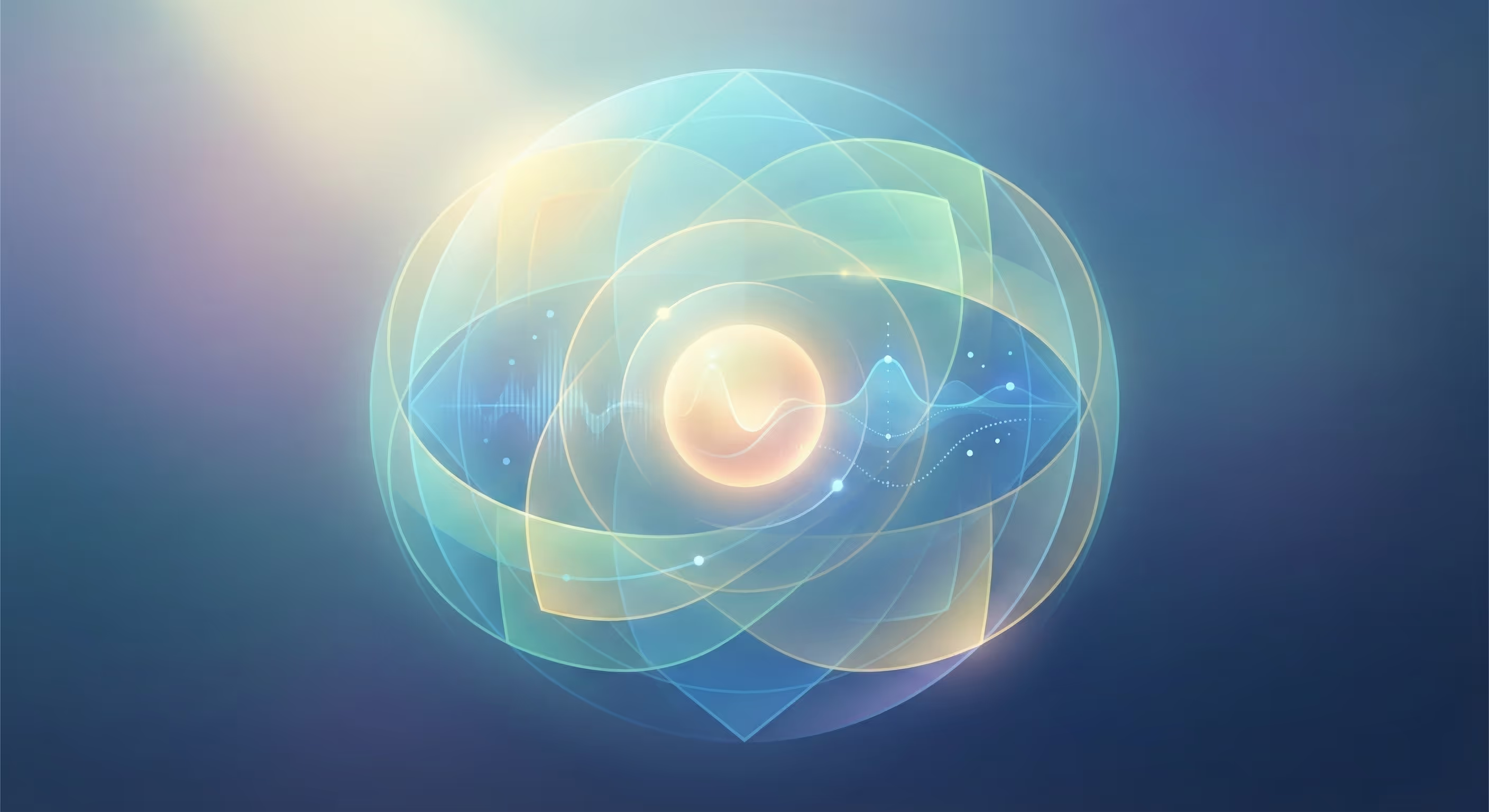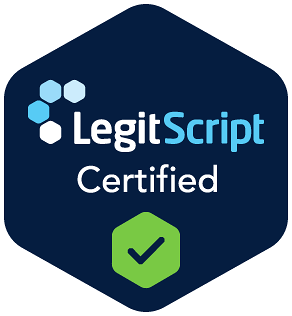Before a patient embarks on ketamine therapy at Lumin Health, they commonly ask: How does ketamine interact with the medications I’m already taking?
For patients who’ve spent years navigating psychiatric care, taking more than one medication is often needed. In addition, as people are managing psychiatric conditions as well as medical conditions they may benefit from complex medication regimens. This becomes especially important when someone is considering adding another to the regimen: ketamine or esketamine. Though exposure to these medicines is relatively infrequent (once or twice weekly at most), interactions are important to recognize both insofar as interactions may create risks or may impact the “efficacy” (a term used to refer to how well a treatment works) of ketamine or esketamine. Indeed, there are a number of medications that may interact with ketamine and esketamine treatment based on the shared places in the brain the medication and ketamine and its FDA-approved derivative, esketamine, have an effect. Understanding drug interactions is vital not only for safety during the course of ketamine/esketamine treatment for mental health, but also for effectiveness. From here forward, for the sake of an “easy” read, I’ll speak of ketamine and esketamine treatment just as “ketamine” as the interactions are all the same.
In this post, we’ll explore some common ketamine and esketamine interactions that people ask about... There are so many medications and so many potential ketamine-to-medication interactions — beyond the scope of this blog entry — but we’ll highlight some of the most common ones that people frequently ask about. If you are considering ketamine treatment, please be sure to have a list of active medications so a full and proper review can take place.
Can I take ketamine and SSRIs at the same time?
Let’s begin with one of the most frequently asked questions: Can I do ketamine therapy and SSRIs at the same time?
Selective Serotonin Reuptake Inhibitors (“SSRIs”) — including medications like sertraline (Zoloft), fluoxetine (Prozac), and escitalopram (Lexapro) — are among the most widely prescribed antidepressants. Fortunately, there are no known contraindications between ketamine and SSRI medications. There are other classes of antidepressant medications to consider, such as the SNRI class, the NASSA class, the NDRI class, the TCA class, etc. Some of these antidepressants may increase the likelihood of elevated heart rate and blood pressure during treatment and, to make matters more complicated, some of the risk may be more dependent on dose than the actual medication.
This is why it is so important to have a list of active medications to be evaluated by a Lumin Health clinician to help modify any risk that could occur. Even if there is a potential increased likelihood of side effects, many of these can be addressed simply by taking medication at a different time or being vigilant. Knowing the potential side effects so they can be monitored may be enough to keep a person safe.
Can I take ketamine and benzodiazepines at the same time?
Another common question is: Can I take Xanax (a medication in the benzodiazepine family, which also includes lorazepam (Ativan), clonazepam (Klonopin), diazepam (Valium), etc.) with ketamine?
Benzodiazepine medications impact a part of the brain called a “GABA receptor.” By enhancing the activity of the GABA receptor, benzodiazepines can lend a sense of calm. That said, activating the GABA receptor may interfere with ketamine treatment (which may lend its treatment effect, at least in part, by decreasing how stimulated the GABA receptor is). The interaction between ketamine and benzodiazepines is complex - indeed, as we also sometimes provide them to treat the anxiety that some people experience during treatment sessions. Several studies and clinical observations suggest that ketamine and benzodiazepines may reduce each other’s effectiveness when used concurrently. This potential reduction in efficacy must also take into consideration the usefulness of these benzodiazepines in treating anxiety and other disorders, and the risk of potentially stopping them to help facilitate treatment.
The potential interaction doesn’t mean that patients on benzodiazepines are excluded from treatment. Rather, it calls for a thoughtful review of the frequency a medication from the benzodiazepine class is taken, the dose, the use, and the (potentially low) risk of interaction. At Lumin Health, we collaborate with our patients along with their prescribers to speak about benzodiazepine use during and immediately prior ketamine sessions to cut the best compromise between engaging the treatment and reducing potential risks. These conversations are had on an individual-to-individual basis as no two people come with exactly the same circumstance.
We also take a look at other medications that impact the GABA receptor, such as topiramate (Topamax), pregabalin (Lyrica), gabapentin (Neurontin) among others to help ensure the best possible outcome. Reviewing a medication regimen with one of our experts can offer you the best possible chance at recovery!
Can I take ketamine and Adderall at the same time?
Stimulant medications such as Adderall, Ritalin, Concerta, Vyvanse, and Focalin (among others) are used to treat ADHD and present another common pairing. While there is limited research on the direct interaction between ketamine/esketamine and Adderall (and other stimulant medications) the combination warrants attention for several reasons.
Both drugs can influence dopamine and norepinephrine systems, albeit through different mechanisms. Ketamine and stimulants may overlap in ways that improve energy and focus — or, in rare cases, increase anxiety or the risk of increased heart rate and blood pressure associated with the treatment experience itself. In practice, patients seem to tolerate this combination well, especially when doses are adjusted and monitored, or when a person has been taking stimulant medications for a long while That said, in certain circumstances, especially when someone has pre-existing conditions, changing the way a person takes a stimulant medication could make sense.
At Lumin Health, we watch for overstimulation, elevated blood pressure, and shifts in mood regulation that could be exacerbated by combining stimulant medications and ketamine/esektamine. If the effects of ketamine/esketamine and stimulants feel overwhelming, temporarily pausing the stimulant on the morning of treatment may be appropriate during the course of ketamine therapy. We’re happy to walk you through how to safely combine these medications.
The goal, as always, is balance. We do not seek to eliminate helpful medications, but to ensure that they complement rather than compete with ketamine’s therapeutic effects.
How does ketamine work with alcohol?
The ketamine and alcohol interaction can be unpredictable — and potentially dangerous. Both substances depress the central nervous system and their combination can increase the risk of slowed breathing, impaired judgment, nausea, or blackouts. To receive ketamine/esketamine treatment at Lumin Health, a person has to be unimpaired by any substances such as alcohol to reduce the risk of acute safety risks that can occur when combining them. Of course, just avoiding alcohol for a regular user can be problematic as withdrawal from alcohol can increase the risk of anxiety, increased heart rate and blood pressure, and potentially seizures.
The concern about ketamine and alcohol isn’t only physical. From a psychiatric standpoint, alcohol can diminish ketamines benefits. Alcohol impairs neuroplasticity (how the brain is thought to grow with ketamine and esketamine), exacerbates mood instability, and may interfere with the ability of a person to do all the work necessary to organize and execute a recovery plan after a ketamine dosing session. While occasional, moderate alcohol use is not a disqualifier, regular or heavy drinking will be addressed before beginning ketamine treatment as it pertains to safety, eligibility, and efficacy
Substance use aside from alcohol use can similarly impact the efficacy and safety of ketamine. Cannabis, opioids, cocaine, amphetamine products, and psychedelic substances like LSD and psilocybin-containing mushrooms can all generate serious interactions or decrease efficacy. Please be open with a member of the Lumin Health clinical team as we can walk you through a process with some important steps to help make ketamine treatment as effective and safe as possible. The questions we ask are not designed to pry, but to help a person achieve the benefit that he/she/they is looking for!
At Lumin Health, we routinely screen for alcohol and other substance use and provide support if needed. When patients reduce or pause drinking and other substance use, the therapeutic gains from ketamine are often more pronounced — and more enduring. We view the ketamine/esketamine and substance interaction not just as a risk, but as an opportunity to reevaluate patterns that may no longer serve healing. We’d be excited to walk you through a safe treatment and provide information about how to best help yourself.
What are other ketamine interactions I should be aware of?
There are so many medications that could cause interactions with ketamine and esketamine. Medications that interact with the opioid system, such as common narcotic pain medications (such as Percocet and oxycodone), Naltrexone, and Suboxone may increase the likelihood of serious side effects from ketamine or decrease its efficacy. Medications that interact with the glutamate system, such as lamotrigine, amantadine, memantine, and Auvelity may, likewise impact the efficacy of ketamine/esketamine. There are a host of others. As above, please bring a list of all current medications for a full evaluation, and if you drink alcohol or use other substances — even sparingly — please let a Lumin Health clinician know during the evaluation so we can provide advice regarding safety and making sure the treatment is as effective as it can be.
Ketamine/esketamine therapy doesn’t happen in a vacuum. It interacts — subtly, significantly, and sometimes unpredictably — with the medications and substances patients are already using. Whether we’re talking about ketamine and antidepressants, benzodiazepine medications and ketamine , the risks of ketamine and alcohol interaction, and other potential interactions, the central principle is this: information empowers safety.
As clinicians, our job is not to eliminate complexity, but to guide patients through it. And as patients, knowing how ketamine drug interactions work allows for informed decisions — about medications, lifestyle, and the path forward in healing.
If you’re navigating these decisions, you’re not alone. At Lumin Health, we welcome these questions — and we build our care around answering them together. Simply get in touch with us by giving us a call or scheduling a free, friendly consultation to explore more — we’d be grateful to connect.







